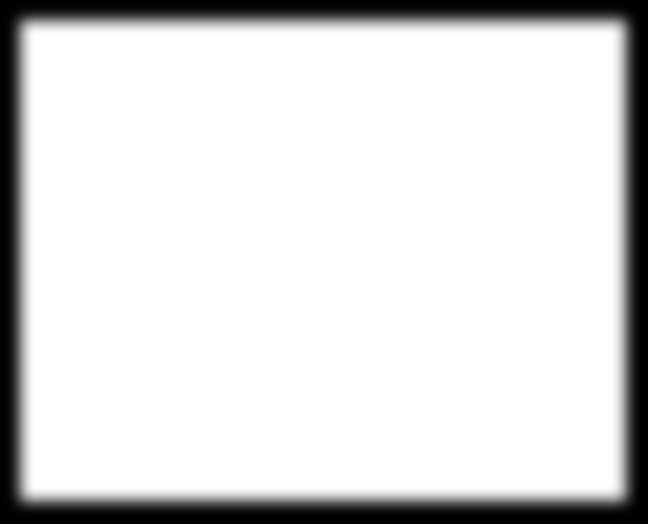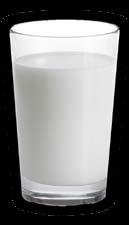9 grams
w w w.cancer.gov
33
Sore Throat and Trouble Swal owing
What it is
Chemotherapy and radiation therapy to the head and neck can make the lining of your throat inflamed and sore (esophagitis). It may feel as if you have a lump in your throat or that your chest or throat is burning. You may also have trouble swallowing. These problems may make it hard to eat and cause weight loss.
Why it happens
Some types of chemotherapy and radiation to the head and neck can harm fast-growing cells, such as those in the lining of your throat. Your risk for a sore throat, trouble swallowing, or other throat problems depends on: u How much radiation you are getting
u If you are getting chemotherapy and radiation therapy at the same time u Whether you use tobacco or drink alcohol during your course of cancer treatment
Ways to manage with food
u Eat 5 or 6 small meals each day instead of 3 large meals. You may find it easier to eat a smaller amount of food at one time.
u Choose foods that are easy to swallow. Some foods are hard to chew and swallow. To help, choose soft foods such as milkshakes, scrambled eggs, and cooked cereal. For other ideas, see page 56 for a list of foods and drinks that are easy to chew and swallow.
u Choose foods and drinks that are high in protein and calories. See the lists about ways to add protein on page 59 and ways to add calories on page 63.
If weight loss is a problem, see the section about weight loss on page 41.
u Cook foods until they are soft and tender.
34
1-800-4-CANCER (1-800-422-6237)


u Cut food into small pieces. You can also puree foods using a blender or food processor.
u Moisten and soften foods with gravy, sauces, broth, or yogurt.
u Sip drinks through a straw. This may make them easier to swallow.
u Do not eat or drink things that can burn or scrape your throat, such as:
• Hot foods and drinks
• Spicy foods
• Foods and juices that are high in acid, such as tomatoes, oranges, and lemonade
• Sharp, crunchy foods, such as potato and tortilla chips
• Drinks that contain alcohol
Tell your doctor or nurse if you:
u Have trouble swallowing
u Feel as if you are choking
u Cough while eating or drinking
Other ways to manage
u Talk with a dietitian. He or she can help you choose foods that are easy to swallow.
u Sit upright and bend your head slightly forward when eating or drinking.
Stay sitting or standing upright for at least 30 minutes after eating.
u Do not use tobacco products. These include cigarettes, pipes, cigars, and chewing tobacco. All of these can make your throat problems worse.
w w w.cancer.gov
35
u Think about tube feedings. Sometimes, you may not be able to eat enough to stay strong and a feeding tube may be a good option. Your doctor or dietitian will discuss this with you if he or she thinks it will help you.
u Talk with your doctor or nurse. Tell your doctor or nurse if you have trouble swallowing, feel as if you are choking, cough while eating or drinking, or notice other throat problems. Also mention if you have pain or are losing weight. Your doctor may prescribe medicines to help relieve these symptoms. They include antacids and medicines to coat your throat and control your pain.
Ways to learn more
Smokefree.gov
Provides resources, including information about tobacco quit lines, a step-by-step smoking cessation guide, and publications to help you or someone you care about quit smoking.
Call:
1-877-44U-QUIT (1-877-448-7848)
Visit:
www.smokefree.gov
36
1-800-4-CANCER (1-800-422-6237)

Vomiting
What it is
Vomiting is another way to say “throwing up.”
Why it happens
Vomiting may follow nausea and be caused by cancer treatment, food odors, motion, an upset stomach, or bowel gas. Some people vomit when they are in places (such as hospitals) that remind them of cancer. Vomiting, like nausea, can happen right after treatment or 1 or 2 days later. You may also have dry heaves, which occur when your body tries to vomit even though your stomach is empty.
Biological therapy, some types of chemotherapy, and radiation therapy to the abdomen, small intestine, colon, or brain can cause nausea, vomiting, or both.
Often, this happens because these treatments harm healthy cells in your digestive track.
Ways to manage with food
u Do not have anything to eat or drink until your vomiting stops.
u Once the vomiting stops, drink small amounts of clear liquids (such as water or bouillon). Be sure to start slowly and take little sips at a time. You can find a list of other clear liquids on page 49.
u Once you can drink clear liquids without vomiting, try full-liquid foods and drinks or those that are easy on your stomach. You can slowly add back solid foods when you start feeling better. There is a list of full-liquid foods on page 50 and a list of foods and drinks that are easy on the stomach on page 52.
w w w.cancer.gov
37


u Eat 5 or 6 small meals each day instead of 3 large meals. Once you start eating, it may be easier to eat smaller amounts at a time. Do not eat your favorite foods at first, so that you do not begin to dislike them.
Be sure to tell your doctor or nurse if your
antinausea medicine is not helping.
Other ways to manage
u Talk with a dietitian. He or she can suggest foods to eat once your vomiting stops.
u Ask your doctor to prescribe medicine to prevent or control vomiting (antiemetics or antinausea medicines). Be sure to tell your doctor or nurse if the medicine is not helping. Your doctor may prescribe another. You may need to take these medicines 1 hour before each treatment and for a few days after.
The type of cancer treatment you get and how you react to it affects how long you need to take these medicines. You may also want to talk with your doctor or nurse about acupuncture. It might also help.
u Prevent nausea. One way to prevent vomiting is to prevent nausea. You can learn more about nausea on page 27.
u Call your doctor if your vomiting is severe or lasts
for more than 1 or 2 days. Vomiting can lead to
dehydration (which occurs when your body does not
have enough water). Your doctor needs to know if
you cannot keep liquids down.
38
1-800-4-CANCER (1-800-422-6237)























Weight Gain
What it is
Weight gain occurs when you have an increase in body weight. Many people with cancer think they will lose weight and are surprised, and sometimes upset, when they gain weight.
Why it happens
Weight gain can happen for many reasons:
u People with certain types of cancer are more likely to gain weight.
u Hormone therapy, certain types of chemotherapy, and medicines such as steroids can cause weight gain. These treatments can also cause your body to retain water, which makes you feel puffy and gain weight.
u Some treatments can also increase your appetite so you feel hungry and eat more. You gain weight when you eat more calories than your body needs.
u Cancer and its treatments can cause fatigue and changes in your schedule that may lead to a decrease in activity. Being less active can cause weight gain.
Do not go on a diet to lose weight before talking with your doctor about it. He or she will help figure out why you are gaining weight and discuss what you can do about it.
Ways to manage with food
u Eat lots of fruits and vegetables. These are high in fiber and low in calories. They can help you feel
full without adding a lot of calories.
w w w.cancer.gov
39




u Eat foods that are high in fiber, such as whole
grain breads, cereals, and pasta. For more ideas,
see the list of high-fiber foods on page 55. People
with certain types of cancer should not eat a lot
of fiber, so check with your doctor before adding
fiber to your diet.
u Choose lean meats, such as lean beef, pork
trimmed of fat, or poultry without skin.
u Choose low-fat milk products. These include
low-fat or non-fat yogurt and skim or 1% milk.
u Eat less fat. Eat only small amounts of butter,
mayonnaise, desserts, fried foods, and other
high-calorie foods.
u Cook with low-fat methods, such as broiling, steaming, grilling, or roasting.
u Eat small portion sizes. When you eat out, take half of your meal home to eat later.
u Eat less salt. This helps you not retain water if your weight gain is from fluid retention.
Other ways to manage
u Talk with a dietitian. He or she can discuss ways to limit the amount of salt you eat if your weight
gain is from fluid retention. A dietitian can also
help you choose healthy foods and make healthy
changes to your favorite recipes.
u Exercise each day. Not only does exercise help you burn calories, but studies show that it helps people
with cancer feel better. Talk with your doctor or
nurse about how much exercise to do while having
cancer treatment.
u Talk with your doctor before going on a diet to
lose weight. He or she can help figure out why
you are gaining weight and prescribe medicine
(called a diuretic) if you have fluid retention.
40
1-800-4-CANCER (1-800-422-6237)


Weight Loss
What it is
Weight loss is when you have a decrease in body weight.
Why it happens
Weight loss can be caused by cancer itself, or by side effects of cancer treatment, such as nausea and vomiting. Stress and worry can also cause weight loss. Many people with cancer have weight loss during treatment.
Ways to manage with food
u Eat when it is time to eat, rather than waiting until you feel hungry. You still need to eat even if you do not feel hungry while being treated for cancer.
u Eat 5 or 6 small meals each day instead of 3 large meals.
You may find it easier to eat smaller amounts at one time.
u Eat foods that are high in protein and calories. You can also add protein and calories to other foods. Try the recipe for peanut butter snack spread on page 43. For other ideas, see the lists of how to add protein on page 59 and how to add calories on page 63.
u Drink milkshakes, smoothies, juices, or soups if you do not feel like eating solid foods. These can provide the protein, vitamins, and calories your body needs. Try the recipe for the high-protein milkshake on page 43. For other ideas, see the
list of full-liquid foods on page 50.
u Cook with protein-fortified milk. You can use protein-fortified milk (instead of regular milk) when cooking foods such as macaroni and cheese, pudding, cream sauce, mashed potatoes, cocoa, soups, or pancakes. See the recipe for protein-fortified milk on the next page.
w w w.cancer.gov
41




Other ways to manage
u Talk with a dietitian. He or she can give you ideas about how to maintain or regain your weight. This includes choosing foods that are high in protein and calories and adapting your favorite recipes.
u Be as active as you can. You might have more appetite if you take a short walk or do other light exercise. Studies
show that many people with cancer feel better when they
exercise each day.
u Think about tube feedings. Sometimes, you may not be able to eat enough to stay strong and a feeding tube may
be a good option. Your doctor or dietitian will discuss this with you if he or she thinks it will help you.
u Tell your doctor if you are having eating problems, such as nausea, vomiting, or changes in how foods taste and smell. He or she can help control these so you can eat better.
Reci peS
To help with weight loss
protein-Fortified Milk
1 quart (4 cups) whole milk









































